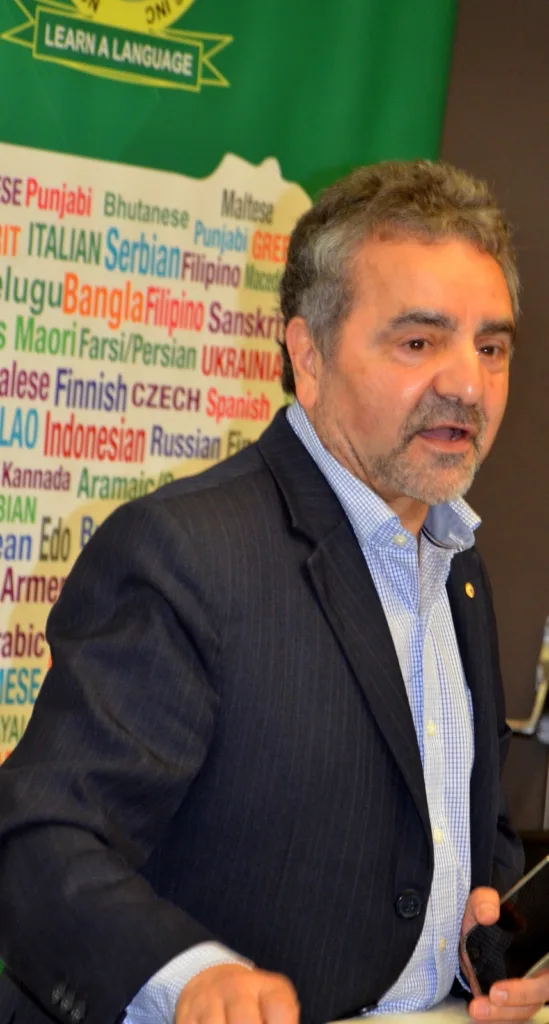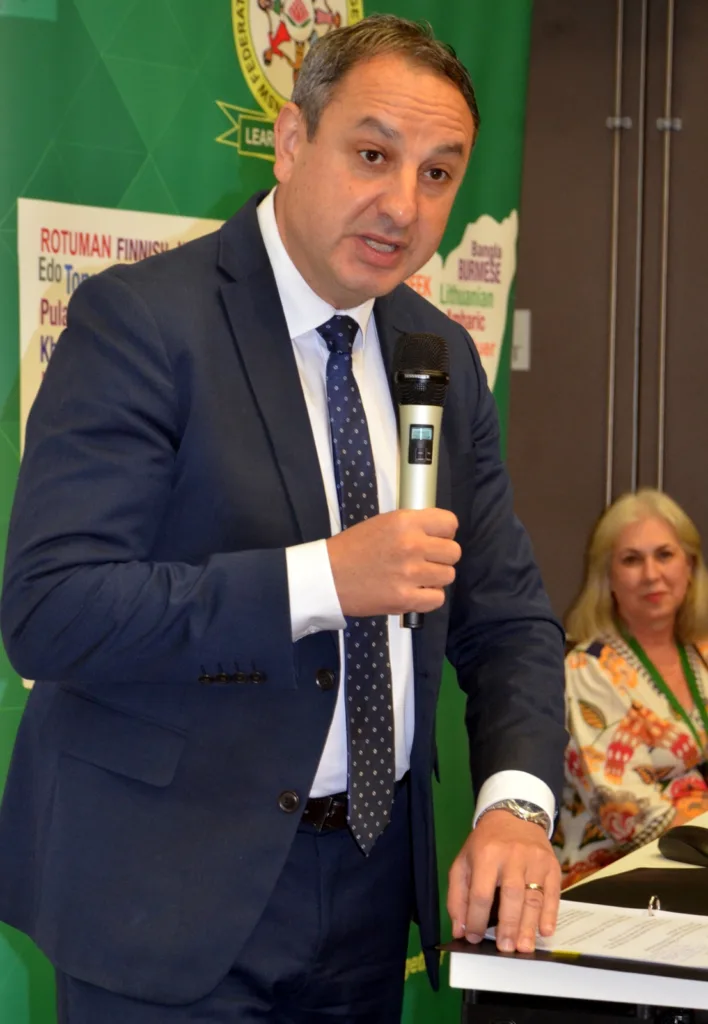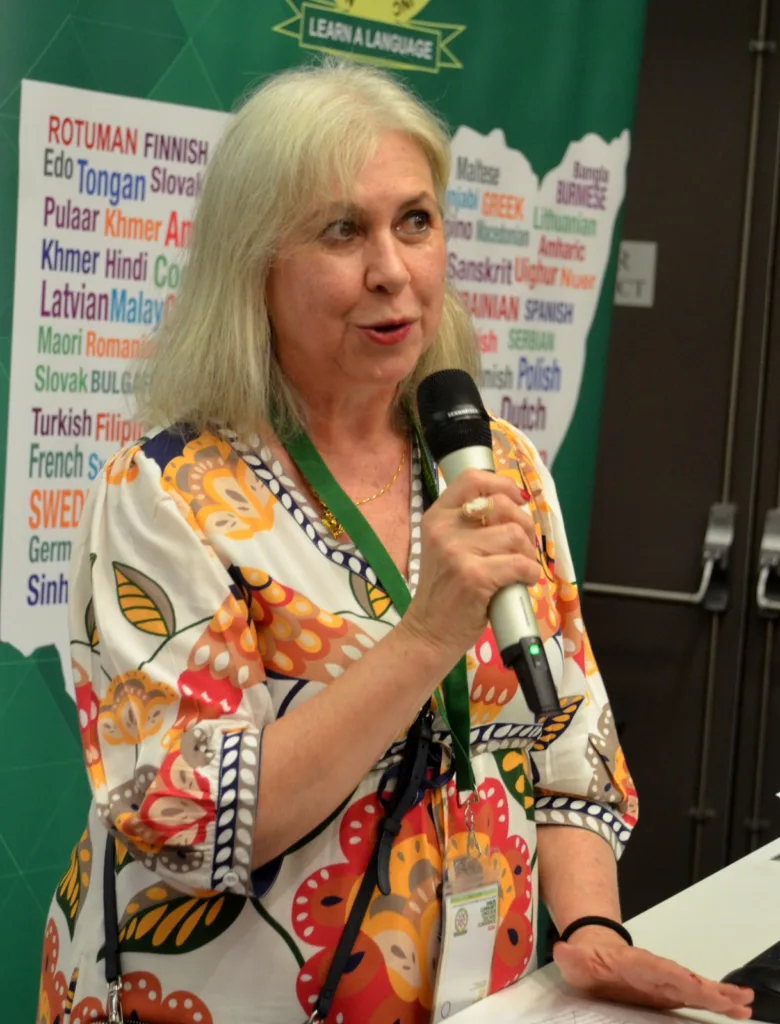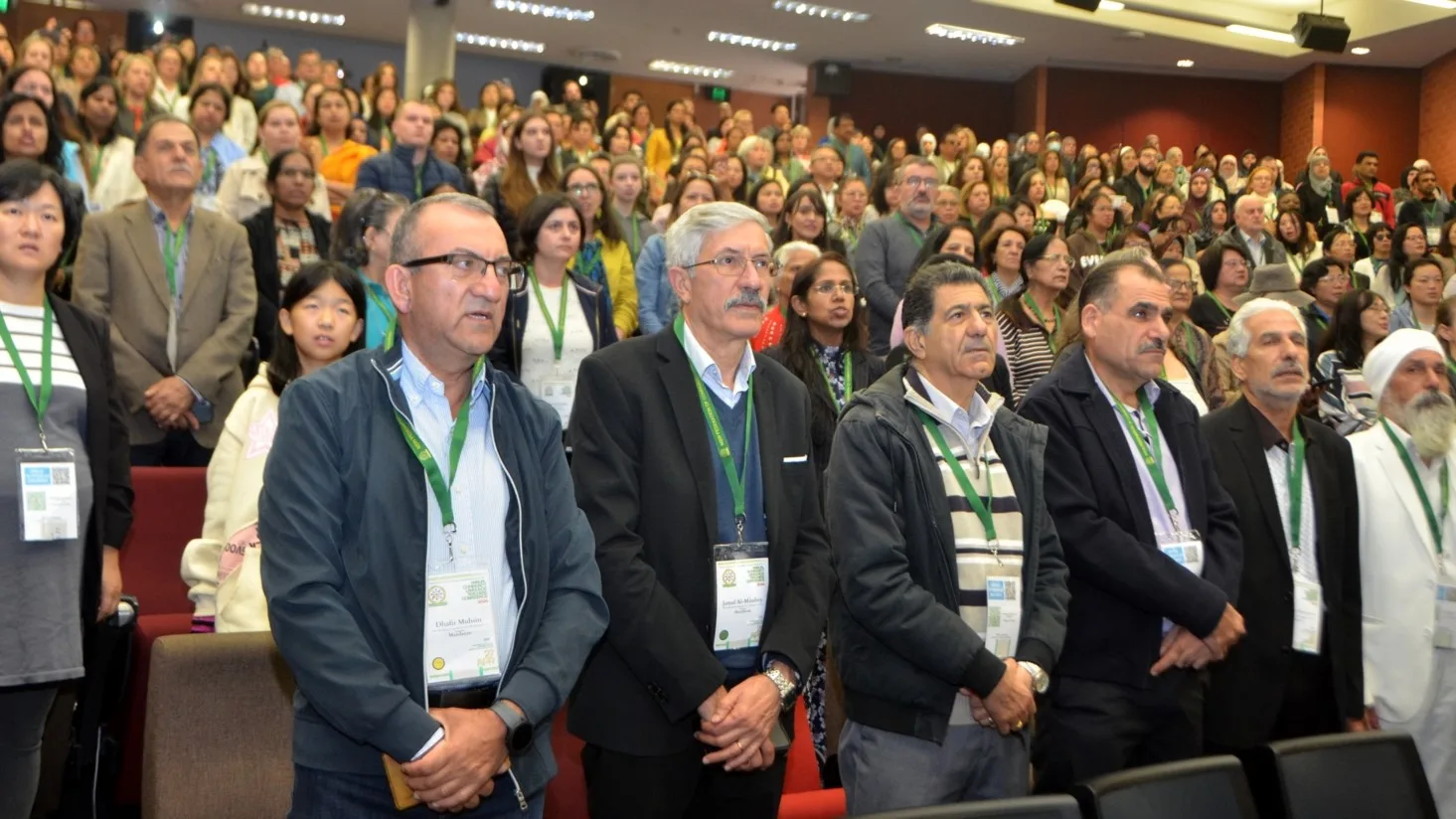Hundreds of teachers of community languages in New South Wales have heard at their annual conference at Sydney University that Artificial Intelligence (AI) is going to be a major determinant in how they teach their language in the future.
They have heard that the proponents of AI want to remove the culture from language teaching and simply make it another way of talking.
Joseph Lo Bianco, Emeritus Professor of Language and Literacy Education at the Melbourne Graduate School of Education, was a key note speaker at the annual conference of teachers of community languages organised by the NSW Federation of Community Language Schools.
Whilst he praised the value of AI in the classroom, he warned that it would have very negative effects.
In his address entitled Rage against the Machine, Professor Lo Bianco said: “AI allows more flexibility in a classroom to deal specifically with different kids in a different way, according to their progress, their interest and their capability.


“The concerns that people have about the influence of AI are on teaching in general and in particular on teaching of language, as well as on language itself and how it is used.
“This internationalisation of communication is happening for no better reason than wanting to save money.
“There are specific cultures which are particular to languages. So, you can see the beginnings of what is going on here – the separation of culture from language and parcelling off of language teaching to English, which will be done through English translated books.
“There would be fewer teachers engaged if this vision were to be realised.”
Professor Lo Bianco warned that there was already alarmism about this.
“Some academics think that AI will kill off the remaining university language teaching departments. Some say this is the end of community language education and some education administrators support this,” he said.

“Thanks to AI, people may not feel the need to learn a second language and Australian students seem to be losing interest in learning another language. There is a serious decline in language numbers.
“This is the biggest single challenge we face. It’s not the technology which is itself rich with support for language learning. The danger is how it will be interpreted by people who think language is only about passing over very basic messages to someone.”
The President of the Federation, Lucia Johns, said: “Professor Lo Bianco has issued a very serious warning which we should all absorb, respond to and act on right now.”
The NSW Federation of Community language Schools supports 3,000 voluntary teachers who run classes in 583 locations around the state for 35,000 children studying over 60 different languages.
